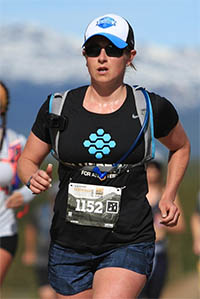Eat Enough Calories and Replace Fluids: A study published in the Journal of Sports Science & Medicine recommends a carbohydrate intake of 1.2 to 1.5 grams per kilogram of body weight. If you plan to eat a meal with carbohydrates and protein, the same study recommended 0.8 grams per kilogram for carbs and 0.2 grams per kilogram for protein of body weight. For rehydration, drink between 12 to 24 ounces for every pound of body weight you lost during exercise. If you use a sport drink to replace electrolytes, count those as your carbs.
Time Consumption Based on Next Workout: Most research agrees that the sooner you refuel, the better; but the general consensus appears to be within 30 minutes of activity. Restoring glycogen as quickly as possible is more important if you have a workout in less than 8 hours. The best way to do this is to consume high-glycemic foods; this is more effective in small feedings over 4 hours. If you have more time to recover, timing is not as important.
Refueling Based on Various Workouts
Now that you have factors and guidelines that influence refueling, look at it based on various distances.
Recovery Run: Aerobic exercises, such as a recovery run, uses oxygen and rely on fat for fuel. After a run like this, you really just need to eat a healthy, balanced meal within 4 hours. Aim for a 3:1 carb to protein ratio.
Tempo Run: The goal of tempo runs is to stay just below your lactic threshold as you sit on the border of aerobic and anaerobic systems. Restoring your glycogen stores after a tempo run is critical to recovery. Consume 4:1 ratio of carbs and protein on the lower range of 1.2 grams per kilogram of body weight within 30 minutes. Avoid consuming fat for this meal because it will slow down the metabolism for the carbs and protein that are needed to recover.
Intense Track Workout: These workouts will be strictly anaerobic, without oxygen, which means your body uses glycogen as fuel. These workouts are often short and require resting between sets. If your stomach can tolerate it, the best way to refuel is with a high glycemic and high carb sports drink between sets.
Long Run: If you plan to do over 1.5 hours of activity, it is important to fuel before and during your workout. Runs like this often start as aerobic and then switch to anaerobic as your body starts to fatigue and your heart rate rises. After a long run, you need more calories with the 4:1 ratio of carbs and protein on the higher range of 1.5 grams per kilogram of body weight. Aim to consume most of the calories within 4 hours of the activity in small feedings.
READ THIS NEXT: The Best Ways to Refuel After a Hard Cycling Workout


